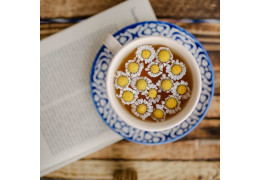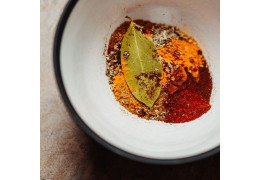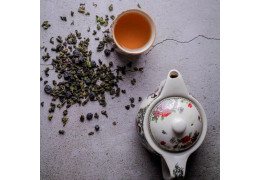Herbal infusions and their benefits for winter
Winter signals the return of cold weather, short days, fatigue and temporary colds. It's also a time of heavy, difficult-to-digest meals. To take care of your health and your morale, there's nothing better than a homemade herbal infusion. Here's a guide to choosing a plant for a digestive, relaxing or soothing herbal tea.
Chamomile infusion to soothe aches and pains
Steep three grams of chamomile flowers in hot water for a few minutes. The result is a soothing herbal tea for your throat. Chamomile infusion supports dry coughs and helps maintain respiratory health. Chamomile flowers are also thought to support the immune system. A cup of chamomile also helps relaxation and digestion.
The soothing properties of mallow
Mallow is another plant with throat-soothing properties. It has soothing and emollient properties. Teas made from mallow flowers provide support in cases of hoarseness. They also help clear the respiratory tract. You can also infuse mallow flowers to aid digestion.
Properties of linden tea
Lime blossoms have many virtues. Its tea is said to support your body's natural defenses and help maintain good health. The plant is also known to promote sweating during feverish states. Infusing lime blossom leaves in hot water also produces a herbal tea that aids relaxation and digestion.
The benefits of sage for winter
Make a homemade herbal tea with sage leaves, also known as garden sage. The strong-tasting infusion is said to boost the immune system and relieve throat inflammation. Sage is also said to help with digestive problems and excessive perspiration, thanks to its ursolic acid content.
Fennel teas for digestion
Fennel is an excellent plant for a herbal tea with digestive properties. Fennel seed infusion is said to have an antispasmodic effect, reducing flatulence and bloating. The tea also calms diarrhea and stomach upsets. To reap the benefits of this product, consume at least three infusions a day.
Ginger for digestive problems
Like cinnamon, ginger is a spice and a staple of Asian cuisine. But it's also a good plant for winter herbal tea. Plain or with lemon, its strong, spicy taste helps you fight the cold. Ginger is said to improve digestion and limit vomiting associated with motion sickness.
The power of peppermint tea
Peppermint infusion relieves colds, blocked sinuses and headaches. The menthol in peppermint soothes coughs and throat irritation. Add lemon or honey for additional antiseptic benefits.
A thyme infusion for winter
Gather some thyme from your garden and infuse for a few minutes in water. Thanks to its polyphenol and vitamin C content, thyme supports your body's defenses. Thyme tea is said to relieve sore throats and chesty coughs associated with colds. Allow 2 grams per cup.
A relaxing cup of hemp leaf infusion
Hemp leaves are infused to take advantage of the relaxing effect of CBD, or cannabidiol. Hemp herbal teas offer sedative properties and are said to help combat stress. This plant is ideal for a few minutes' soothing.
Sleep and health with verbena infusion
With its lemon flavour, fragrant verbena is a pleasant plant for a relaxing herbal tea. Vervain helps reduce nervousness and irritability. Vervain teas are said to help you sleep better. Perfect for keeping your energy up in winter.
Lemon balm teas for a better mood
Lemon balm leaves provide infusions with a sweet honey-lemon taste. They help you relax and reduce anxiety. Lemon balm is a good plant for a mood-boosting herbal tea that helps combat the cold and winter weather. Go organic when choosing a plant for a winter herbal tea. Organic plants won't pollute your cup or your body. Drink your infusion plain or combine ingredients to enjoy the taste and benefits of each product.





